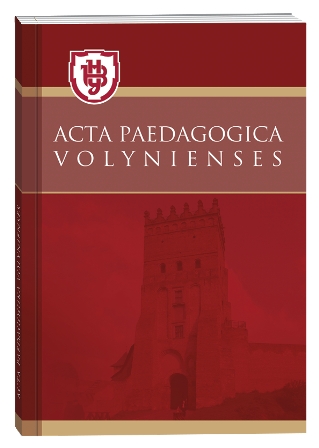FORMATION OF SOCIAL COMPETENCE IN FOREIGN LANGUAGE LESSONS BY MEANS OF CORPORATE LEARNING
DOI:
https://doi.org/10.32782/apv/2021.5.15Keywords:
social competence, corporate language learning, soft skills, functions and components of social competenceAbstract
The modern world is changing the virtual borders of countries. This provides relevance for mastering a foreign language. Mastering a foreign language allows modern people to expand their capabilities and increase the potential for success in society. A separate issue is the development of social competence and soft skills of the modern personality. Developed social skills allow a person to present himself, to initiate social actions, to realistically assess social reality and to establish communicative connections. The combination of two problems with one solution algorithm provides an opportunity to focus more on current trends (McDonaldization) and modernize the educational process. The purpose of this article is to reveal the potential and opportunities for the formation of social competence in foreign language lessons, using the tool of corporate language learning. The methodology of corporate foreign language learning corresponds to modern social priorities and neurocognitive research. The Research has shown that corporate English language learning is an effective team building tool. It allows to create conditions for successful socialization of the person and it also helps to develop social skills. As an experiment, we proposed the course, which was translated into English as "Harmony World" and introduced in secondary school. The course is based on the corporate study of the topic and created with an emphasis on the development of all components of social competence. The study showed the dynamics of growth of qualitative indicators of foreign language acquisition in the subjects of the educational process and the dynamics of growth of the level of social competence. It confirmed the hypothesis of integration of the development of two competencies during one course and the effectiveness of the introduction of corporate foreign language learning.
References
Kagan, S.. Dimensions of cooperative classroom structures. In Slavin, R.E. et al (Eds.). Learning to Cooperate, Cooperating to Learning. New York: Plenum press, 1999. 452 р.
Paradis M. The neurofunctional components of the bilingual cognitive system. Cognitive aspects of bilingualism. Netherlands : Springer, 2007. P. 3–28.
Zhang Y. Cooperative language learning and foreign language learning and teaching. Journal of language teaching and research. 2010. Т. 1. №. 1. С. 81–83.
Губарєва Д.В. Соціальна компетентність в умовах сучасної початкової школи України. Вісник Альфреда Нобеля. Серія «Педагогіка і психологія». Педагогічні науки. 2020. № 1 (19). С. 27–32.
Егоров Дмитрий Евгениевич. Формирование социальной компетентности студента среднего профессионального учебного заведения в процессе социального образования : дис. ... канд. пед. наук : спец. 13.00.01 / Егоров Дмитрий Евгениевич ; Ин-т среднего проф. образования РАО. Казань, 2003. 188 с.
Жаботинська С., Плахотнюк Є. Вивчення іноземної мови дорослими: нейрокогнітивний ракурс. Мовознавчий вісник : зб. наук праць. Вип. 21. Черкаси : Черкаський національний університет імені Богдана Хмельницького, 2016. Вип. 21. С. 7–17.
Канішевська Л.В. Крокуємо до соціальної зрілості : наук.-метод. посіб. К. : Ін-т проблем виховання НАПН України. 2011. 220 с.
Козирєв М.П. Соціологія : навчальний посібник. Львів: Львівський державний університет внутрішніх справ, 2013. 440 с.
Концепція Нової української школи. URL: https://nus.org.ua/wp-content/uploads/2017/07/konczepcziya.pdf (дата звернення: 2.05.2021).
Петько Л.В. Лінгвосоціокультурний підхід у вивченні англомовної новорічної пісні «Jingle Bells». Topical issues of redagogy : Collective monograph. Edizioni Magi, Roma, Italy. 2019. С. 31–57.







